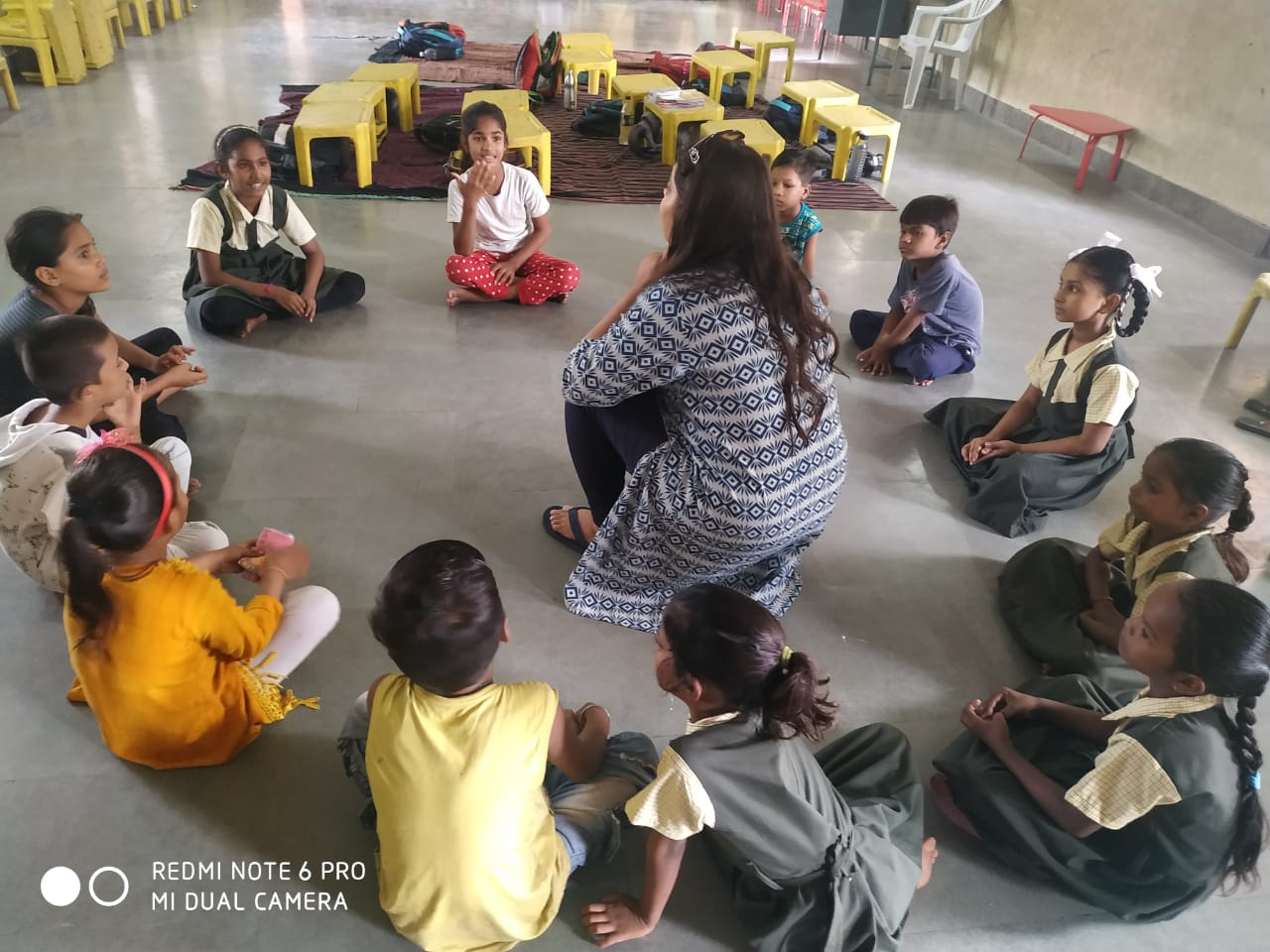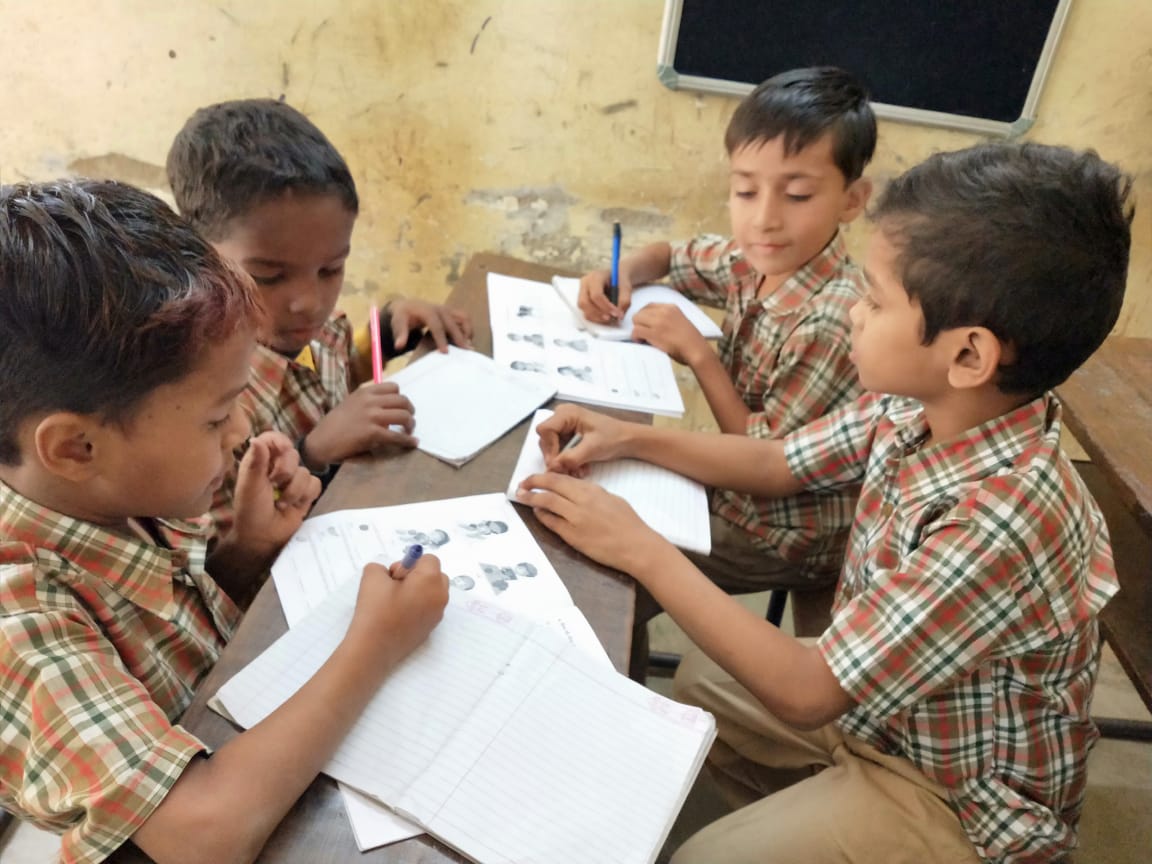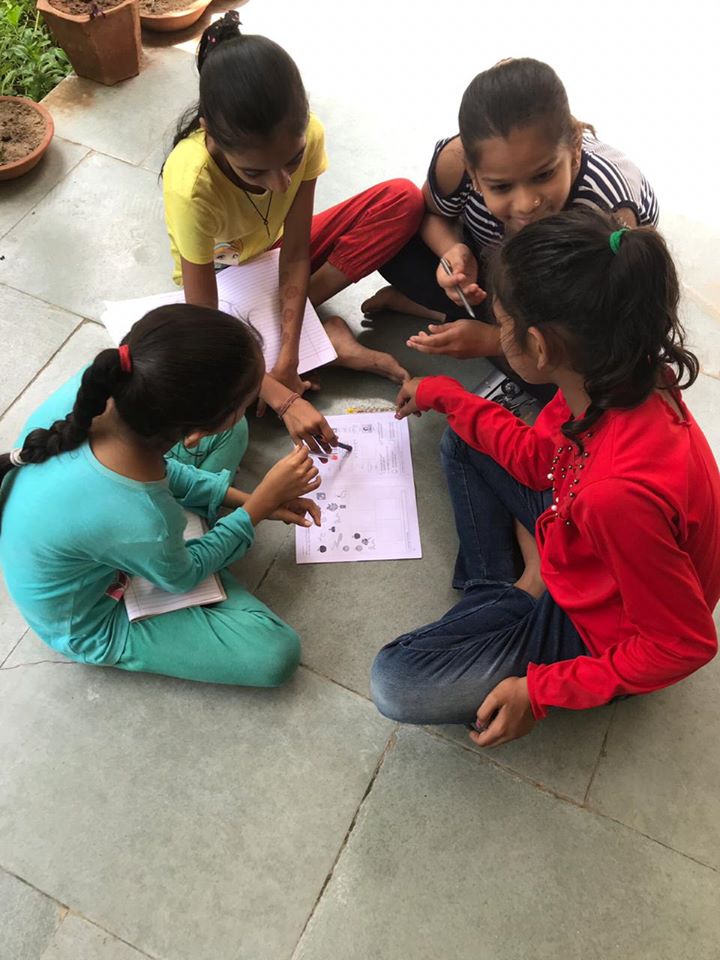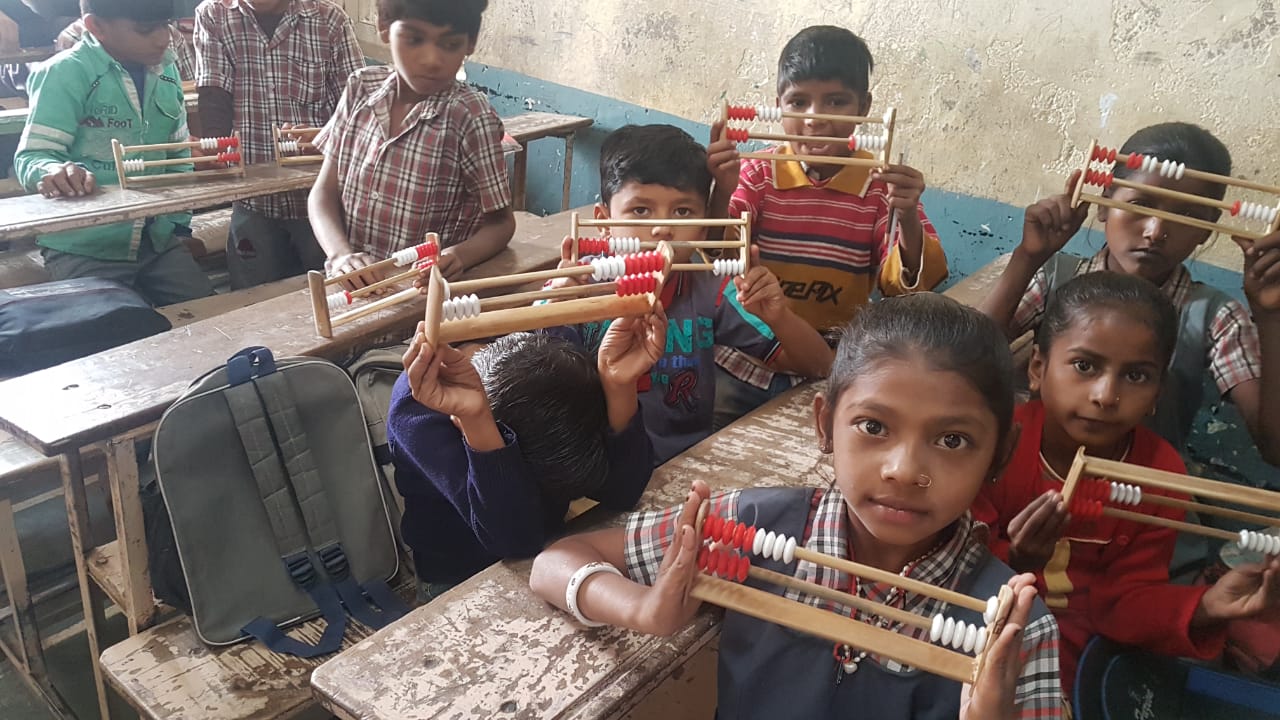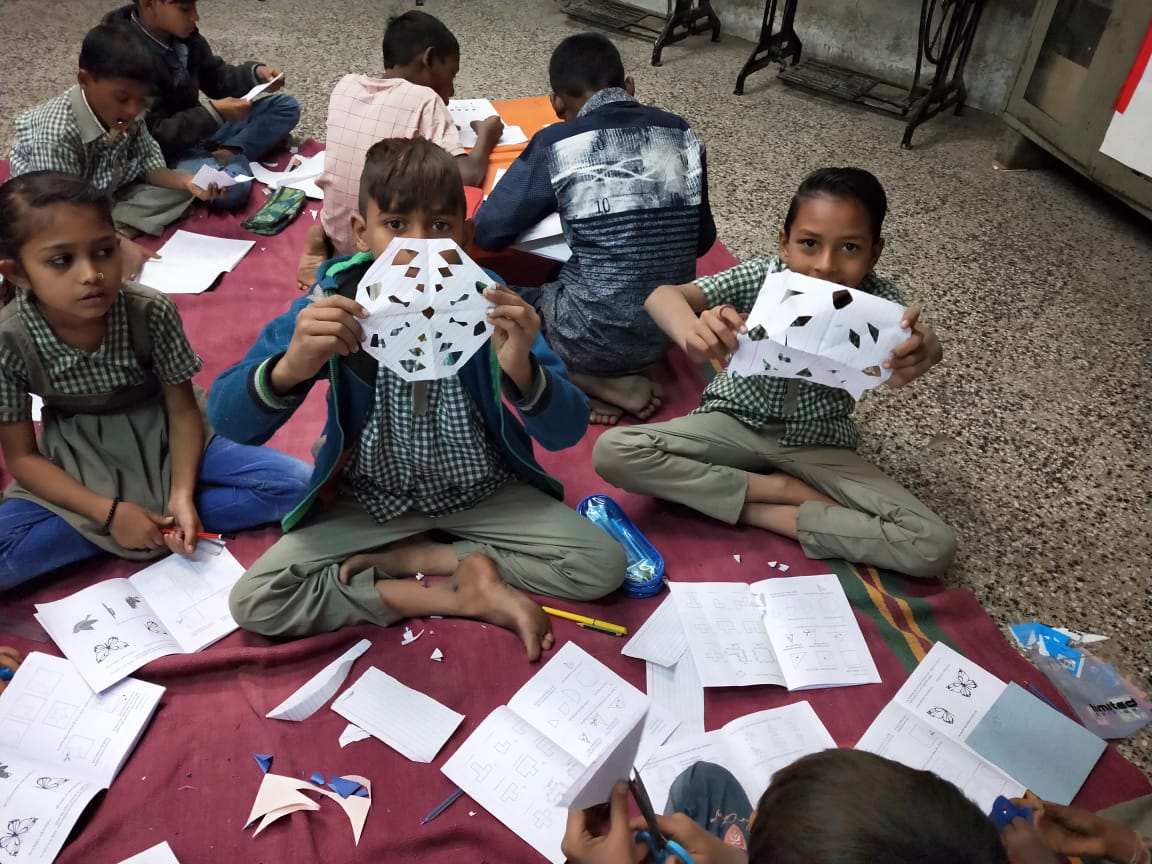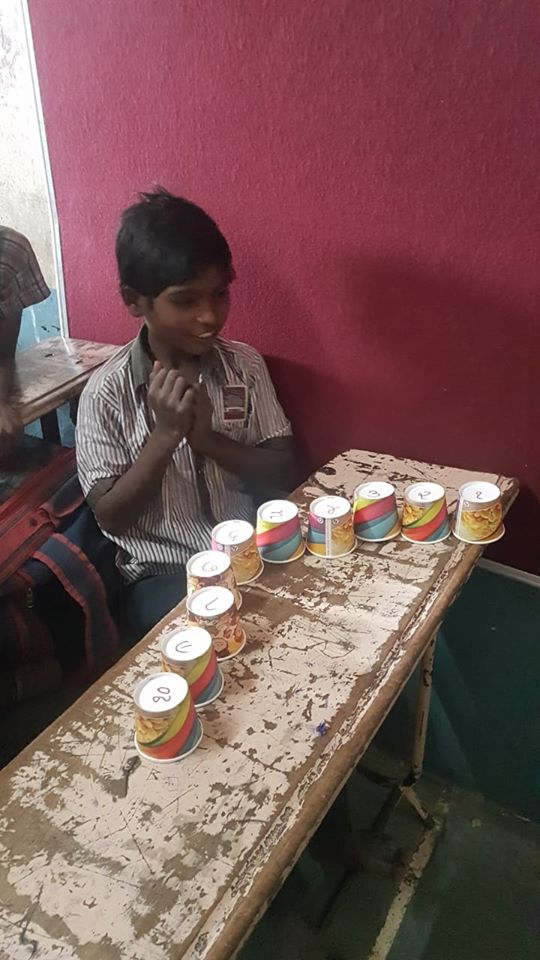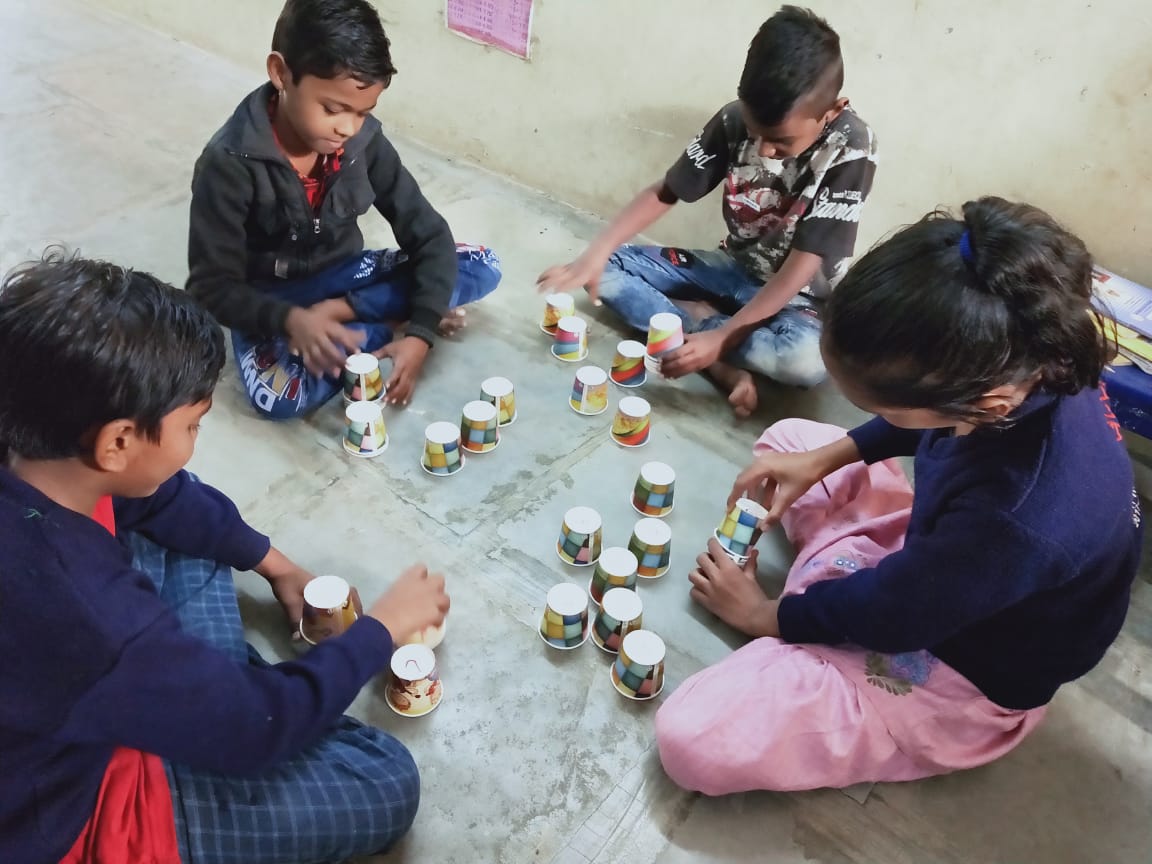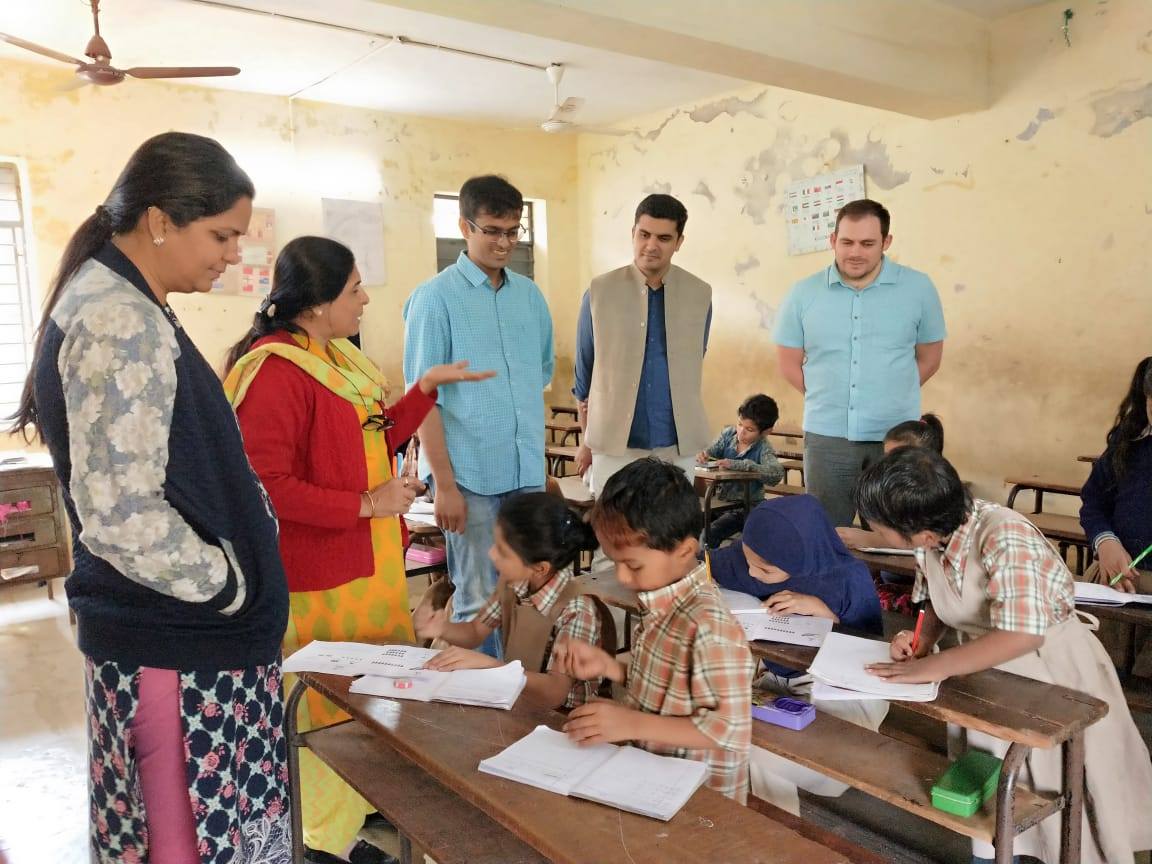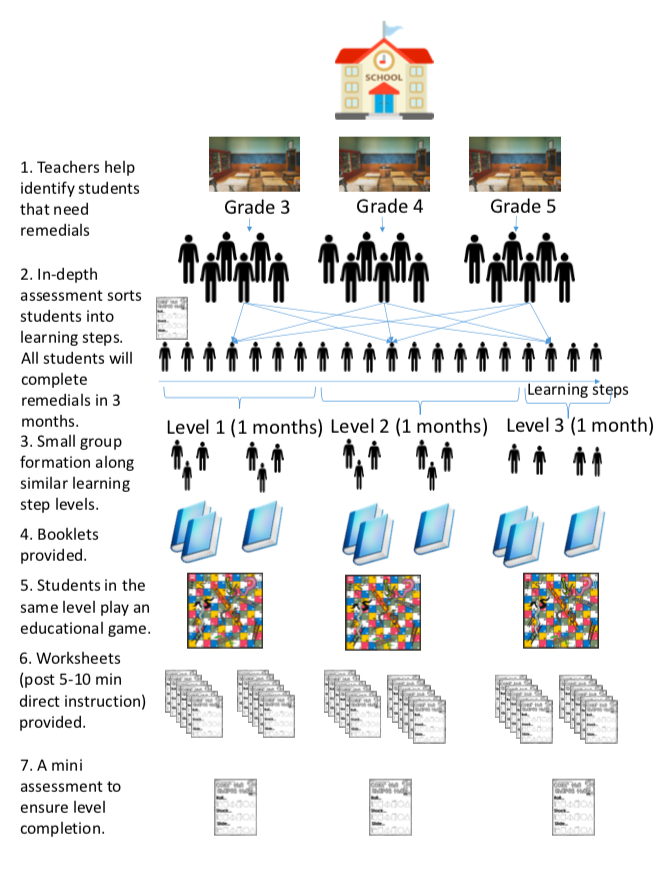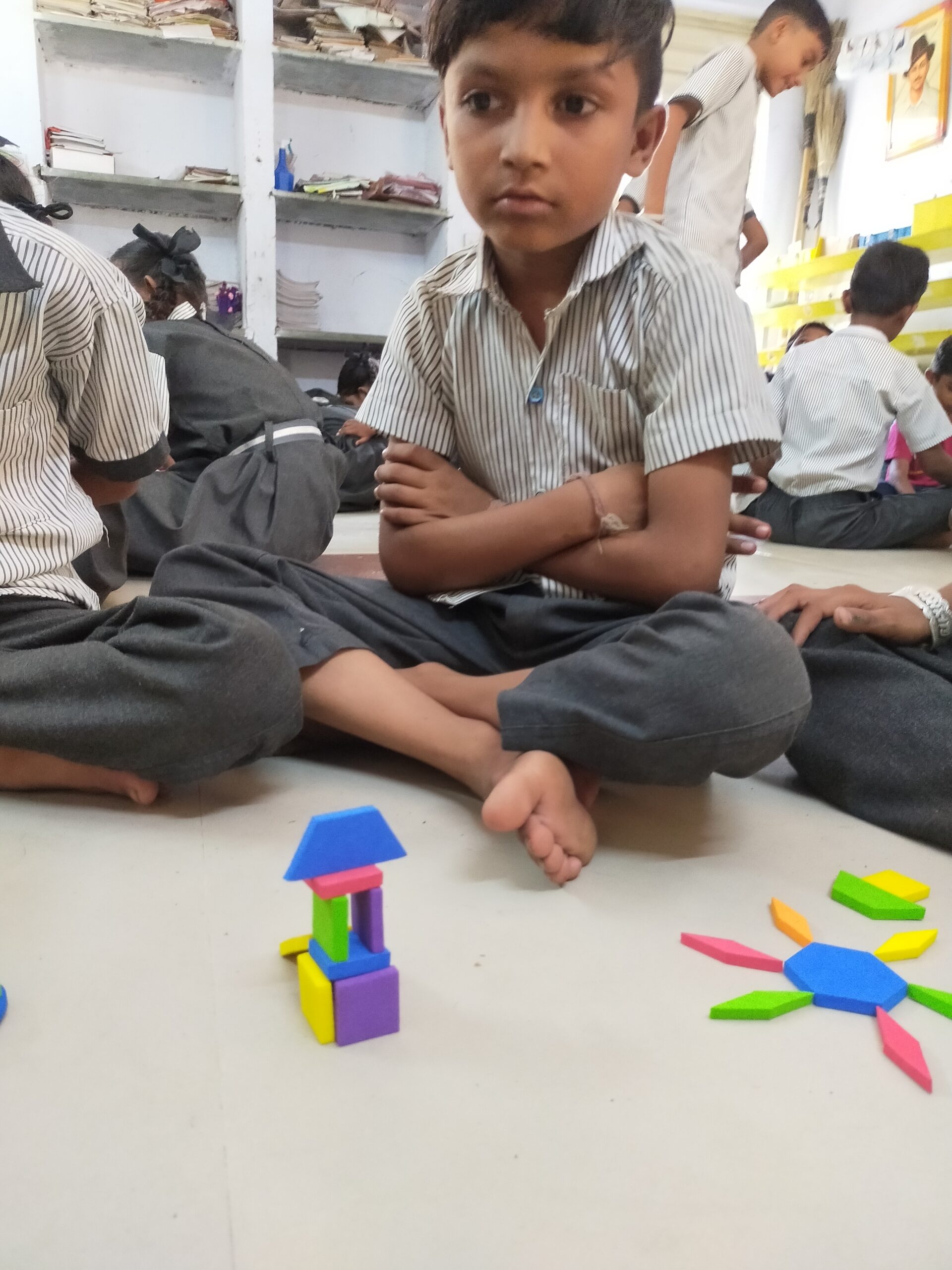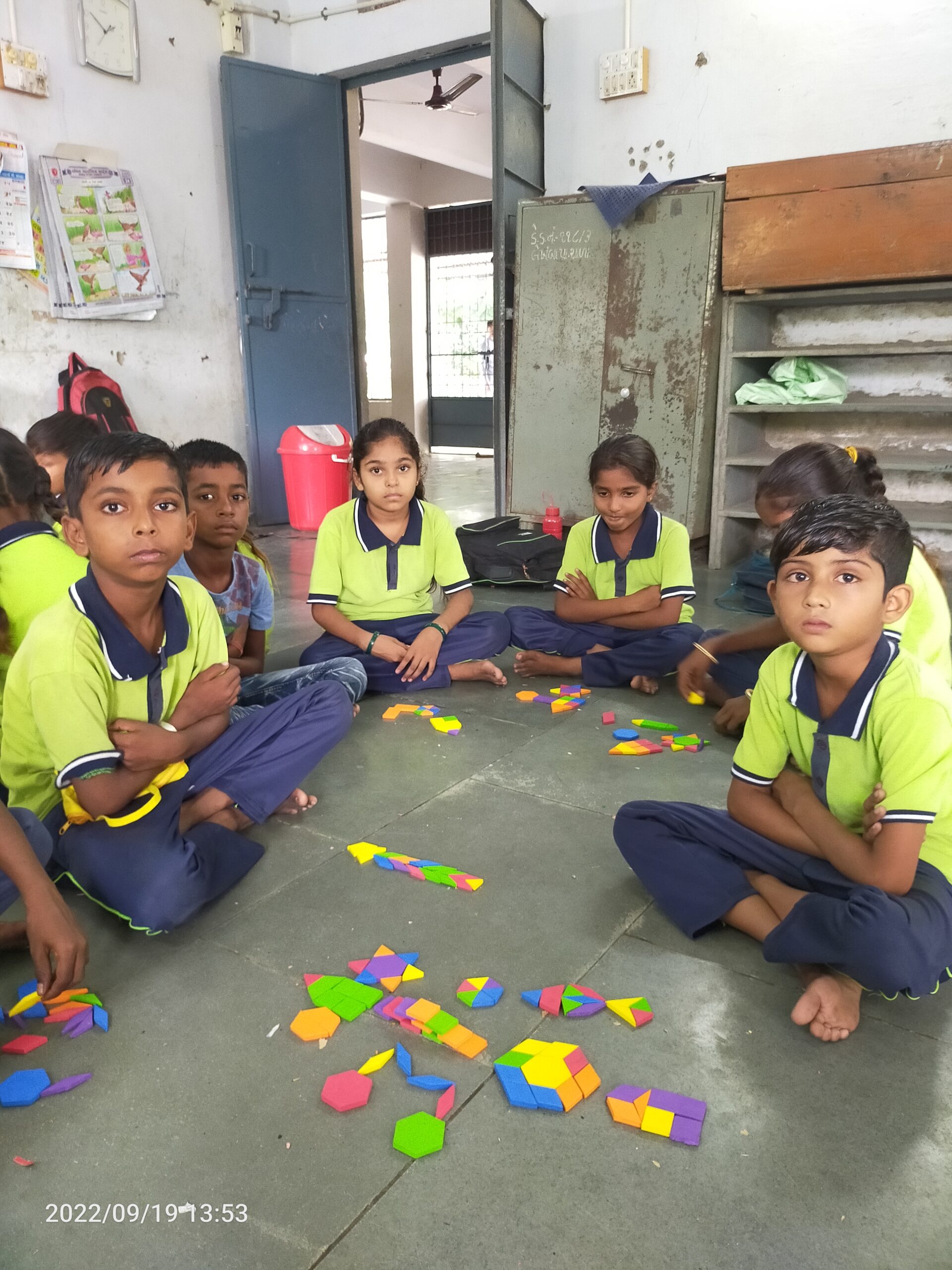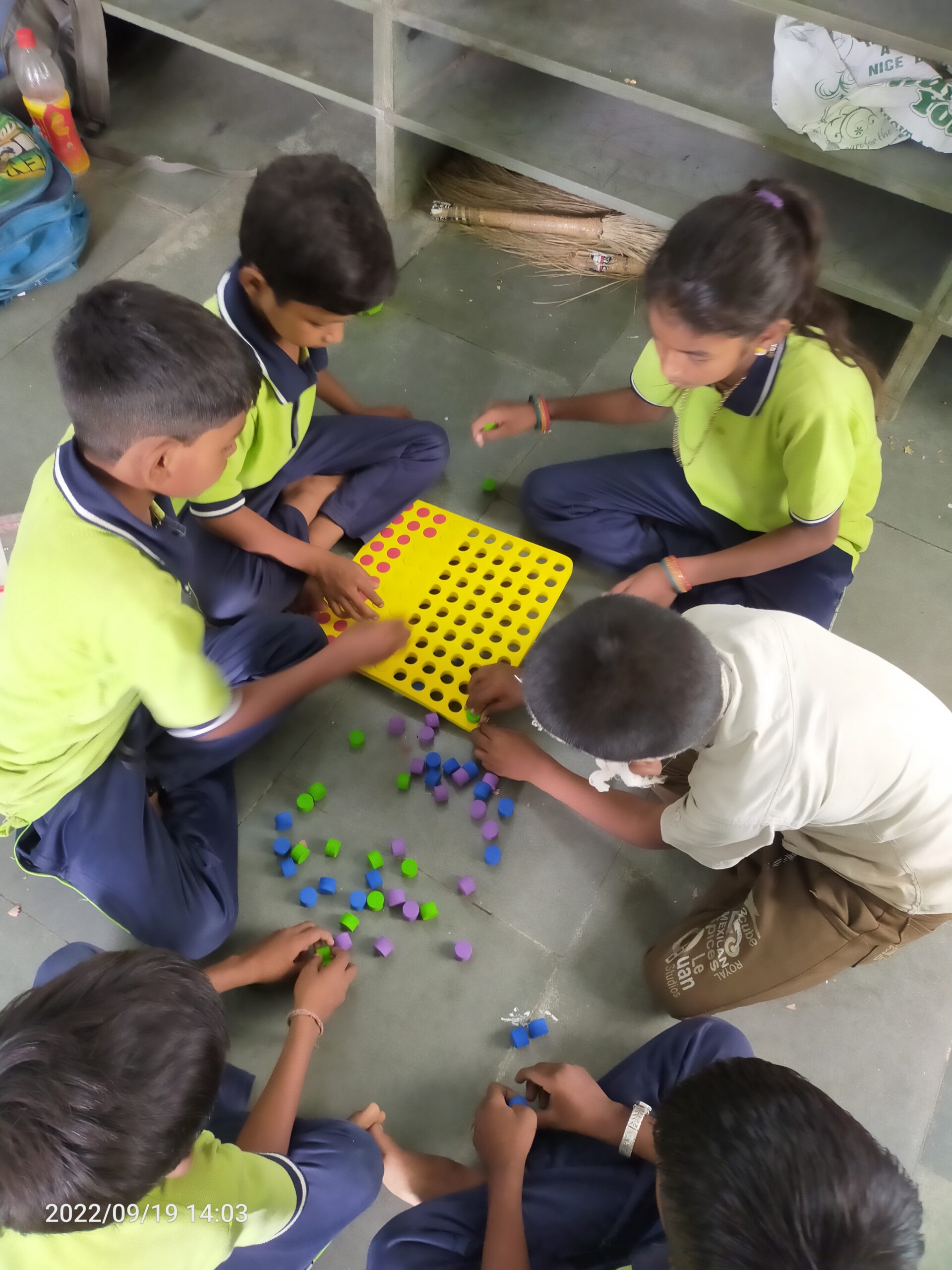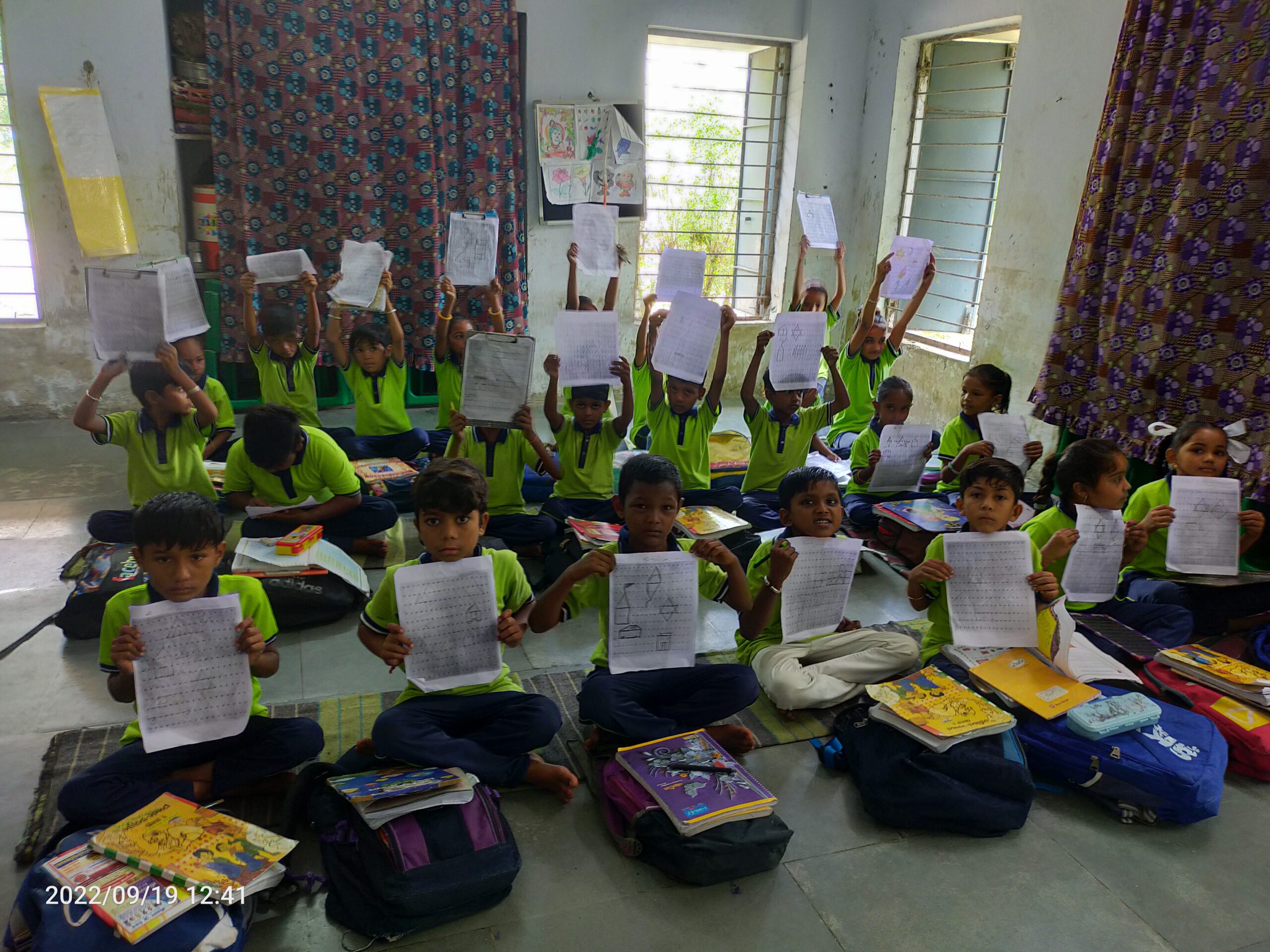Over the years, our program has evolved drastically. We initially begun by self and peer directed, conceptual learning, and visual materials to support remedials education. This soon evolved into developing a whole suite of resources including tests, worksheets and games to support remedials education. We have implemented the program across over 120 schools and realized the need to target a deeper rooted problem of integration of application and understanding based education in regular sessions. Since summer 2022, we have expanded laterally and have also been working to promote application, understanding and activity based learning across 10 schools in the Sanand block. Both of these interventions are described below.

सरल कदम (Saral Kadam) Program
-
Planning and Resource material generation (December 2018 to June 2019)
Develop, design and pilot test assessment, booklets, worksheet and game.
-
Phase 2 pre-piloting and piloting (June 2019 to April 2020)
We initially pre-piloted some of the resources in 5 schools to study the project feasibility and thereafter, implemented the full program across 7 schools and conducted a thorough quantitative impact evaluation.
-
Phase 3 scaling up (April 2020 to April 2022)We distributed our materials to partner NGOs: Aasmaan foundation and YUVA Unstoppable. Notably, we rolled out the materials to over 10,000 children in 110 schools in the Sanand block.Phase 4 lateral development (April 2022 onwards)We are currently working on developing activity based learning kits and in the future hope to integrate them with national infrastructures including text book QR codes and teacher training.
Foundational Numeracy Remedials classes
The program aims to bring about self directed learning and is fundamentally based on ideas of self-directed learning, peer learning, conceptual understanding, application based learning, optimal difficulty levels, distributed practice (little bit often) and interleaved practice (requiring children to change mental strategies as opposed to block practice). Many remedial programs have seen a drop in learning in delayed post testing due to the reliance on repeated practice; we hope to avoid this through conceptual understanding based booklets, practical application based worksheets, and immersive practice through games.
In the academic year 2019 – 2020 we ran the program across 12 government schools in Ahmedabad district. We have conducted qualitative and quantitative analyses of the program and found that the program was responsible for a marked improvement in students conceptual understanding, academic performance in the school tests and also in non-academic spheres like problem solving skills, self efficacy and confidence. For further details please refer to our SKP Pre-pilot Report or a scientific article that is under publication (the preprint can be found on https://osf.io/vfpqy/). In the academic year 2020 – 2021 our partner NGOs: Aasmaan foundation and YUVA Unstoppable distributed the materials to their children to continue students’ education despite the pandemic. In the academic year 2021 – 2022 the materials were distributed to approximately 110 government primary schools in the Sanand block.
Activity based learning
Several nation-wide surveys have demonstrated limited foundational learning, and this has only been compounded by the pandemic. While we continue to use our remedials materials as a bridge course we realized the need for integrating activity based learning into day to day classrooms. We are currently developing (and using existent) kits and aligning them with the curriculum to run curriculum aligned application and conceptual learning. These learning by doing sessions help hone a deep understanding of foundational mathematical and scientific concepts.




